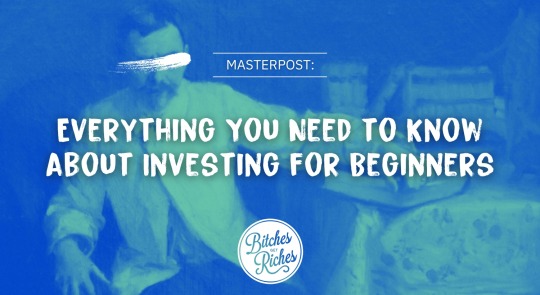#Invest in the stock market
Text
Setting Your Price Point: A Business Strategy
Understanding the Art of Pricing
Pricing your products or services effectively is a critical aspect of running a successful business. Your price point not only impacts your revenue but also shapes customer perception and can make or break your competitiveness in the market. In this article, we’ll delve into the art and science of setting the right price point for your business.
Understanding Your…

View On WordPress
#7 Fun & Creative Ways To Bring In Some Extra Money In 2023#business pricing#competitive pricing#cost analysis#cost-plus pricing#Earn Online#Extra Money In 2023#Increase Your Income#Invest in the stock market#Market research#Offer your skills as a freelancer#Participate in online surveys#Participate in online tutoring or teaching#pricing psychology#pricing strategy#Rent out a room in your home#Sell your unwanted items#Start a side hustle#transparent pricing#value proposition#value-based pricing
0 notes
Text
Five Strategies to Make $5,000 a Week
Written by Delvin
Are you looking to boost your income and earn $5,000 a week? While it may require effort and dedication, there are several strategies you can employ to reach this financial goal. In this blog post, we will explore five actionable steps that can help you make $5,000 a week.
1. Start a Profitable Online Business:
One effective way to generate a substantial income is by starting…
View On WordPress
#Create and Monetize Engaging Content#dailyprompt#Develop a Profitable Real Estate Venture#Financial#Financial Freedom#Financial Literacy#Five Strategies to make $5000 a Week#Generational Wealth#Invest in the Stock Market#knowledge#money#Offer Specialized Freelance Services#Start a Profitable Online Business Stocks#Stock Market#Wealth
0 notes
Photo

Fundamentals of investing:
What’s the REAL Rate of Return on the Stock Market?
Do NOT Make This Disastrous Beginner Mistake With Your Retirement Funds
The Dark Magic of Financial Horcruxes: How and Why to Diversify Your Assets
Dafuq Is Interest? And How Does It Work for the Forces of Darkness?
Booms, Busts, Bubbles, and Beanie Babies: How Economic Cycles Work
When Money in the Bank Is a Bad Thing: Understanding Inflation and Depreciation
Investing Deathmatch series:
Investing Deathmatch: Managed Funds vs. Index Funds
Investing Deathmatch: Traditional IRA vs. Roth IRA
Investing Deathmatch: Investing in the Stock Market vs. Just… Not
Investing Deathmatch: Stocks vs. Bonds
Investing Deathmatch: Timing the Market vs. Time IN the Market
Investing Deathmatch: Paying off Debt vs. Investing in the Stock Market
Now that we’ve covered the basics, are you ready to invest but don’t know where to begin? We recommend starting small with micro-investing through our partner Acorns. They’ll round up your purchases to the nearest dollar and invest the change in a nicely diversified portfolio of stocks, bonds, and ETFs. Easy as eating pancakes:
Start saving small with Acorns
Alternative investments:
Bullshit Reasons Not to Buy a House: Refuted
Investing in Cryptocurrency is Bad and Stupid
So I Got Chickens, Part 1: Return on Investment
Twelve Reasons Senior Pets Are an Awesome Investment
How To Save for Retirement When You Make Less Than $30,000 a Year
Understanding the stock market:
Ask the Bitches Pandemic Lightning Round: “Did Congress Really Give $1.5 Trillion to Wall Street?”
Season 3, Episode 2: “I Inherited Money. Should I Pay Off Debt, Invest It, or Blow It All on a Car?”
Money Is Fake and GameStop Is King: What Happened When Reddit and a Meme Stock Tanked Hedge Funds
Season 3, Episode 7: “I’m Finished With the Basic Shit. What Are the Advanced Financial Steps That Only Rich People Know?”
Retirement plans:
Dafuq Is a Retirement Plan and Why Do You Need One?
Procrastinating on Opening a Retirement Account? Here’s 3 Ways That’ll Fuck You Over
How to Painlessly Run the Gauntlet of a 401k Rollover
Ask the Bitches: “Can I Quit With Unvested Funds? Or Am I Walking Away From Too Much Money?”
Workplace Benefits and Other Cool Side Effects of Employment
You Need to Talk to Your Parents About Their Retirement Plan
Got a retirement plan already? How about three or four? Have you been leaving a trail of abandoned 401(k)s behind you at every employer you quit? Did we just become best friends? Because that was literally my story until recently. Our partner Capitalize will help you quickly and painlessly get through a 401(k) rollover:
Roll over your retirement fund with Capitalize
Recessions:
Season 1, Episode 12: “Should I Believe the Fear-Mongering about Another Recession?”
There’s a Storm a’Comin’: What We Know About the Next Recession
Ask the Bitches: How Do I Prepare for a Recession?
A Brief History of the 2008 Crash and Recession: We Were All So Fucked
Ask the Bitches Pandemic Lightning Round: “Is This the Right Time To Start Investing?”
1K notes
·
View notes
Text

Aí vida de luxo... Molhada pelo orvalho da alegria, duas colheres de açúcar uma colher dE whisky e muita laranja, água escorrer. Tenho sede de ti de um só vez ainda pensas em mim ainda és a primeira golpada de desejo primaveril, aí aí que é agora outra vez
108 notes
·
View notes
Text
Ko-Fi prompt from Isabelo:
Hi! I'm new to the workforce and now that I have some money I'm worried it's losing its value to inflation just sitting in my bank. I wanted to ask if you have ideas on how to counteract inflation, maybe through investing?
I've been putting this off for a long time because...
I am not a finance person. I am not an investments person. I actually kinda turned and ran from that whole sector of the business world, at first because I didn't understand it, and then once I did understand it, because I disagreed with much of it on a fundamental level.
But... I can describe some factors and options, and hope to get you started.
I AM NOT LEGALLY QUALIFIED TO GIVE FINANCIAL ADVICE. THIS IS NOT FINANCIAL ADVICE.
What is inflation, and what impacts it?
Inflation is the rate at which money loses value over time. It's the reason something that cost 50 cents in the 1840s costs $50 now.
A lot of things do impact inflation, like housing costs and wage increases and supply chains, but the big one that is relevant here is federal interest rates. The short version: if you borrow money from the government, you have to pay it back. The higher the interest rates on those loans, the lower inflation is. This is for... a lot of reasons that are complicated. The reason I bring it up is less so:
The government offers investments:
So yeah, the feds can impact inflation, but they also offer investment opportunities. There are three common types available to the average person: Bonds, Bills, and Notes. I'll link to an article on Investopedia again, but the summary is as follows: You buy a bill, bond, or note from the government. You have loaned them money, as if you are the bank. Then, they give it back, with interest.
Treasury Bills: shortest timeframe (four weeks to a year), and lowest return on investment. You buy it at a discount (let's say $475), and then the government returns the "full value" that the bond is, nominally (let's say $500). You don't earn twice-yearly interest, but you did earn $25 on the basis of Loaning The Government Some Cash.
Treasury Notes: 2-10 year timeframe. Very popular, very stable. Banks watch it to see how they should plan the interest rates for mortgages and other large loans. Also pretty high liquidity, which means you can sell it to someone else if you suddenly need the cash before your ten-year waiting period is up. You get interest payments twice a year.
Treasury Bonds: 20-30 years. This is like... the inverse of a house mortgage. It takes forever, but it does have the highest yield. You get interest payments twice a year.
Why invest money into the US Treasury department, whether through the above or a different government paper? (Savings bonds aren't on sold the set schedule that treasury bonds are, but they only come in 30-year terms.)
It is very, very low risk. It is pretty much the lowest risk investment a person can make, at least in the US. (I'm afraid I don't know if you're American, but if you're not, your country probably has something similar.)
Interest rates do change, often in reaction or in relation to inflation. If your primary concern is inflation, not getting a high return on investment, I would look into government papers as a way to ensure your money is not losing value on you.
This is the website that tells you the government's own data for current yield and sales, etc. You can find a schedule for upcoming auctions, as well.
High-yield bank accounts:
Savings accounts can come with a pretty unremarkable but steady return on investment; you just need to make sure you find one that suits you. Some of the higher-yield accounts require a minimum balance or a yearly fee... but if you've got a good enough chunk of cash to start with, that might be worth it for you.
They are almost as reliable as government bonds, and are insured by the government up to $250,000. Right now, they come with a lower ROI than most bonds/bills/notes (federal interest rates are pretty high at the moment, to combat inflation). Unlike government papers, though, you can deposit and withdraw money from a savings account pretty much any time.
Certificates of Deposit:
Okay, imagine you are loaning money to your bank, with the fixed term of "I will get this money back with interest, but only in ten years when the contract is up" like the Treasury Notes.
That's what this is.
Also, Investopedia updates near-daily with the highest rates of the moment, which is pretty cool.
Property:
Honestly, if you're coming to me for advice, you almost definitely cannot afford to treat real estate as an investment thing. You would be going to an actual financial professional. As such... IDK, people definitely do it, and it's a standby for a reason, but it's not... you don't want to be a victim of the housing bubble, you know? And me giving advice would probably make you one. So. Talk to a professional if this is the route you want to take.
Retirement accounts:
Pension accounts are a kind of savings account. You've heard of a 401(k)? It's that. Basically, you put your money in a savings account with a company that specializes in pensions, and they invest it in a variety of different fields and markets (you can generally choose some of this) in order to ensure that the money grows enough that you can hopefully retire on it in fifty years. The ROI is usually higher than inflation.
These kinds of accounts have a higher potential for returns than bonds or treasury notes, buuuuut they're less reliable and more sensitive to market fluctuations.
However, your employer may pay into it, matching your contribution. If they agree to match up to 4%, and you pay 4% of your paycheck into an pension fund, then they will pay that same amount and you are functionally getting 8% of your paycheck put into retirement while only paying for half of it yourself.
Mutual Funds:
I've definitely linked this article before, but the short version is:
An investment company buys 100 shares of stock: 10 shares each in 10 different "general" companies. You, who cannot afford a share of each of these companies, buy 1 singular share of that investment company. That share is then treated as one-tenth of a share of each of those 10 "general" companies. You are one of 100 people who has each bought "one stock" that is actually one tenth of ten different stocks.
Most retirement funds are actually a form of mutual fund that includes employer contributions.
Pros: It's more stable than investing directly in the stock market, because you can diversify without having to pay the full price of a share in each company you invest in.
Cons: The investment company does get a cut, and they are... often not great influences on the economy at large. Mutual funds are technically supposed to be more regulated than hedge funds (which are, you know, often venture capital/private equity), but a lot of mutual funds like insurance companies and pension funds will invest a portion of their own money into hedge funds, which is... technically their job. But, you know, capitalism.
Directly investing in the stock market:
Follow people who actually know what they're doing and are not Evil Finance Bros who only care about the bottom line. I haven't watched more than a few videos yet, but The Financial Diet has had good energy on this topic from what I've seen so far, and I enjoy the very general trends I hear about on Morning Brew.
That said, we are not talking about speculative capital gains. We are talking about making sure inflation doesn't screw with you.
DIVIDENDS are profit that the company shares to investors every quarter. Did the company make $2 billion after paying its mortgages, employees, energy bill, etc? Great, that $2 billion will be shared out among the hundreds of thousands of stocks. You'll probably only get a few cents back per stock (e.g. Walmart has been trading at $50-$60 for the past six months, and their dividends have been 57 cents and then 20.75 cents), but it adds up... sort of. The Walmart example is listed as having dividends that are lower than inflation, so you're actually losing money. It's part of why people rely on capital gains so much, rather than dividends, when it comes to building wealth.
Blue Chip Stocks: These are old, stable companies that you can expect to return on your investment at a steady rate. You probably aren't going to see your share jump from $5 to $50 in a year, but you also probably won't see it do the reverse. You will most likely get reliable, if not amazing, dividends.
Preferred Stocks: These are stock shares that have more reliable dividends, but no voting rights. Since you are, presumably, not a billionaire that can theoretically gain a controlling share, I can't imagine the voting rights in a given company are all that important anyway.
Anyway, hope this much-delayed Intro To Investing was, if not worth the wait, at least, a bit longer than you expected.
Hey! You got interest on the word count! It's topical! Ish.
#economics#capitalism#phoenix talks#ko fi#ko fi prompts#research#business#investment#finance#treasury bonds#savings bonds#certificate of deposit#united states treasury#stocks#stock market#mutual funds#pension funds
63 notes
·
View notes
Text
The market is so prosperous and the returns are so beautiful. I can’t bear to see investors losing money in the stock market. Follow me to start your road to wealth.
110 notes
·
View notes
Text
Hey everyine great news! My drop shiopping courses have been enough of a scusess tbat the
33 slurp juices remain. Your mission is to eliminate all of them before they can combine with an astro ape and mint a new astro ape
NFT game is back on! And there’s even better news!!!
Just ship a dead rat to 38.89679° N, 77.03601° W for a big surprise!!! Send me a pic of the surprise and you’ll even get a jared leto joker nft valued at 10 million billion dogecoin on us!!!
But hurry! This once in a lifetime opportunity is going away flr goot in just [function.timne+1]!!! Be sure to get in on the ground floor because forget the moon, we’re going all the way to freaking mars!!!
Did YOU seee the hiddem nessage??? Be sure to read the post thoroughly for any clues you might have missed!!!
#to the moon#nft#bitcoin#blockchain#crypto#cryptocurrency#web 3.0#binance#cryptocurreny trading#investment advice#retirement planning#stocks#stock market#cryptocurrency trading#cryptocurrency investment#might blaze this later idk
118 notes
·
View notes
Text












Author's note: Reference is made to the following scenes: (1), (2), (3)
#ts3#sims 3#sims 3 story#sims stories#tteot story#laurie golzine#omar ayad#muhammad al-saud#i'm sorry for going into details#i hate doing that#look i work in investment but imposter syndrome is kicking me hard#plus it's kind of difficult to make a plot look seamless when there is so much time between updates#in summary: laurie is managing a conglomerate including an investment fund of which noah is a partner#so laurie is a shareholder of a small tech company through that fund#he sold the antivirus via noah to that company as a solution to the virus he developed himself#when the stock market got hacked (by laurie) all companies rushed to get an anti-virus#but it also contained a spyware (also by laurie)#and this is how laurie's main business is now stealing data#laurie arc
68 notes
·
View notes
Text


im sooo normal about these pictures 😊
#i should’ve invested in the stock market at age 2 so then i woulda been able to buy buck-tick tix#i will always mourn this forever lol ijbol …#buck-tick#yutaka higuchi
104 notes
·
View notes
Text
price of girl smell $GSML rises 230.8% after massive supply drops due to they put me in the bath. bank of the country changes advisory from PLAY OUTSIDE IN DIRT to DO NOT SHOWER
335 notes
·
View notes
Text

"Fuel your financial journey with the power of US stocks! 🚀 Don't just watch, be a part of the wealth revolution! 📈 Join my dynamic stock investment group, where opportunities ignite, insights flourish, and success awaits. Seize the moment, let's rewrite the story of your financial triumph together! 💪💼
#financial literacy#financialfreedom#finance#financial#economy#ecommerce#investors#investing#invest#stock market#stocks#stock#real estate#investor#self love#encouragement#encourage#selfworth#manifest#growth#grow#improvement#motivation#motivatedmindset#mindset#growthmindset#improve#quote#quotes#inspirational quotes
49 notes
·
View notes
Text
.
#central election ballot counting ongoing rn and it's so fucking funny#the ruling party is nationalistic + right wing and they won by a massive majority last term and they got too cocky#tenfold the Islamophobia and shit. oh and in the recent campaign the PM spoke about how he's 'sent by god himself to fulfill his mission'#i wish i was kidding... there's a bbc article on this#well yeah. so the opposition formed a coalition bloc for this election. and right now the difference in votes are *this* close#this is despite the nasty games in politics like vote buying and arresting people in opposition and kicking them out of parliament#they made some massive religious issue recently as a part of their political propaganda too but THEY LOST IN THAT AREA THIS TIME#god. the citizens are fucking tired of their shit. good for them#ngl the opposition isn't great either. and a coalition full of conflicting interests would mean an unstable government w no strong leader#so we're fucked either way#but glad to know democracy is alive and well in this country#this has been entertaining. the markets are crashing so i invested quite a bit on stocks lmao#megumi in the tags#indian elections#indian elections 2024#desi tag
10 notes
·
View notes
Note
Hi! I fully do not understand investing, but I’m going to follow the directions you and others give about IRA investments. The one thing that I totally do not grasp is the allocating the funs into an index. Isnt there a scenerio where the index loses money and by retirement age you check it out and it went completely under or something?
Hey kiddo! And welcome to the wide world of investing. You're on the right track by starting an IRA for your retirement.
Yes, there are people who lose money by investing their retirement fund. This happens when they retire at the same time a recession or stock market crash happens. And it's fucking unlucky timing.
If you invest $100, and the market falls to the point that it's worth $80, you will lose money if you pull your money out when it's worth $80. But after the fall, when the market recovers so your original investment is worth $120, and THEN you pull your money out... you will have made money!
In other words, timing matters. We explain exactly how this works here:
Wait... Did I Just Lose All My Money Investing in the Stock Market?
Now to address the second part of your question. You can avoid the risk of losing money by regularly adjusting your allocation. When you're young and many years from retirement, you can allocate your portfolio aggressively into higher-risk investments. Who cares if you lose money in the short term? As we explain in the link above, you don't actually LOSE the money until you take the money out of the stock market.
But as you get older and nearer to retirement, you want to lock in your gains by moving your money from high-risk investments like stocks to safer investments like bonds. That way when you get within a few years of retirement, you can kind of "protect" your investments from being overly affected by market fluctuations.
In other words: allocation is not a one-time activity. We explain this more here:
Investing Deathmatch: Stocks vs. Bonds
This was a big oversimplification, but we go into detail about all of this here:
Do NOT Make This Disastrous Beginner Mistake With Your Retirement Funds
If you liked this article, join our Patreon!
163 notes
·
View notes
Text

Then it’s real…
#Then it’s real…#pirates of the caribbean#pirates of the caribbean meme#memes#meme#taxes#tax#stocks#stock market#stock trading#investing stocks#stock#wall street#wall streeet journal#wall st#wall st.#stock management software#capitalism#exploitation#exploitative#ausgov#politas#auspol#tasgov#taspol#australia#fuck neoliberals#neoliberal capitalism#anthony albanese#albanese government
17 notes
·
View notes
Text
Ko-Fi Prompt from @apprendere:
Economics topic: ethical investing (what definitions are they using when companies like amazon are on lists of ethical/social/green stocks?)
This one took me a bit of research 😅
My first instinct is that those are frequently greenwashing, and that any individual company needs to be investigated for those claims, personally, before actually going ahead to invest. I'm generally hesitant to call most investment/stocks ethical, but there are ways and reasons for ethics in the given industry (as discussed here with @rhokitten and @dasnya).
Green-chip stocks are, by name, a play on blue-chip stocks (established, stable, reliable companies that are unlikely to waver overly much if the economy takes a bad turn). Green chip companies are those that claim to be environmentally sustainable, or to support the environment in some way. If the company in question is one that works directly in environmental sustainability, such as solar panels or wind farms or organic farming tools, that's probably not a lie.
However... you also get companies like Ford claiming to be green. Now, from what I can tell so far, they have been cutting down on carbon emissions for two decades now, but any large company that historically relies on gas or oil claiming to be green is... a bit questionable. The Climate Town video on Carbon Offsets is a good primer on understanding how large transportation and vehicle manufacturing companies can use 'green' language to claim progress while effectively not changing any of their practices. With Ford, we've seen minor cuts in manufacturing pollution, but as this Guardian article points out, they still advertise for massive cars with terrible mpg... which is a related issue, because said massive cars, the SUVs and 'extended cab' pickups are unregulated compared to sedans and other, smaller vehicles (see: Not Just Bikes video).
Ford spends a lot of money advertising a car that is the opposite of green, and doesn't actually provide a use for the vast majority of people buying it. Unless you work in an industry where you need to haul large, dirty equipment on the regular, like on a farm or in construction or landscaping, you don't need a pick-up truck. And if you do work in those industries, an extended cab is generally not helpful.
So Ford is talking good game, but... is it following through? That's up for debate.
You mentioned Amazon, so I went to look at their Climate Pledge Fund. They mention a "net-zero carbon goal," which already sends up red flags, as explained in the aforementioned Carbon Offsets video. They do seem to be investing in a lot of companies that will theoretically make their future work have less of an environmental impact; the companies include electric vehicles, renewable energy, and custom packaging to reduce waste. It all sounds good.
But what do the critics say?
In this Thomson Reuters Foundation article, Khalil Abdullah addresses how Amazon has historically hidden most of its information on environmental impacts, engaged in a number of greenwashing campaigns, and shoved numbers on its enormous pollution under the rug. Yet, despite this, it remains on the list of companies that the ESG (environmental, social, and governance) investors consider a viable choice, because it's... easy. It's a good investment financially, so they can just... look away from the complications, because the money and reputation is enough.
In my eyes, the concept of green stock is yet another form of greenwashing, one with no actual, specified definition, which means it's about as useful in understanding your investments as words like 'organic.' Unfortunately, it looks like this is going to continue being one of the ways companies lie to us, and any individual investment needs to be examined thoroughly before we can figure out what it is that we're actually supporting.
My suggestion would be to look into companies that are acting directly in support of environmentalism (solar and wind are probably safe), have a long and transparent history of environmentalism, from before it was trendy, or are small, local, and maybe new enough that they aren't killing the environment in the name of economies of scale.
Maybe if you get in early enough, you can grab enough shares to have a positive impact on future green initiatives!
(Prompt me on ko-fi!)
#economics#stock market#capitalism#investment#greenwashing#phoenix talks#ko fi#ko fi prompts#economics prompts
69 notes
·
View notes
